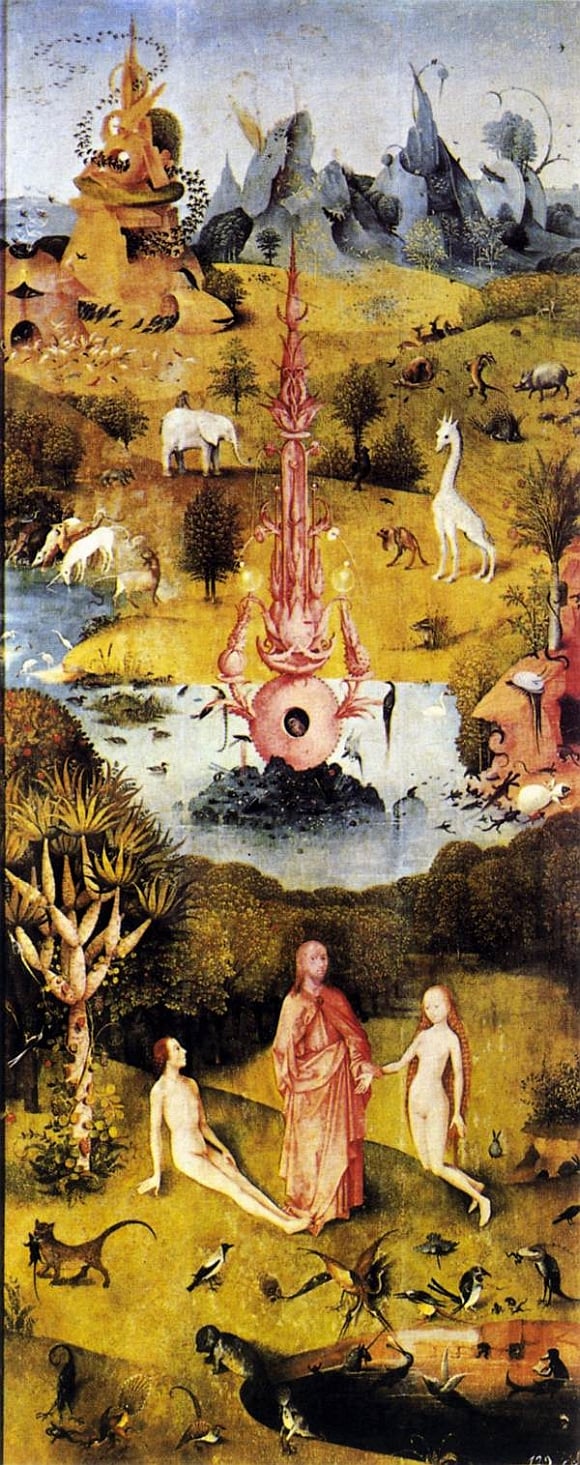
Douce dame jolie,
Pour dieu ne pensés mie
Que nulle ait signorie
Seur moy fors vous seulement.
Qu’adès sans tricherie
Chierie
Vous ay et humblement
Tous les jours de ma vi
Servie
Sans villain pensement.
Helas! et je mendie
D’esperance et d’aïe;
Dont ma joie est fenie,
Se pité ne vous en prent.
Douce dame jolie…
Mais vo douce maistrie
Maistrie
Mon cuer si durement
Qu’elle le contralie
Et lie
En amour tellement
Qu’il n’a de riens envie
Fors d’estre en vo baillie;
Et se ne li ottrie
Vos cuers nul aligement.
Douce dame jolie…
Et quant ma maladie
Garie
Ne sera nullement
Sans vous, douce anemie,
Qui lie
Estes de mon tourment,
A jointes mains deprie
Vo cuer, puis qu’il m’oublie,
Que temprement m’ocie,
Car trop langui longuement.
Douce dame jolie…
Lady fair and sweet
for god’s sake do not think
that any has rule
over my heart, but you alone.
For always, without treachery
Cherished one
I have you, and humbly
All the days of my life
Served
Without base thoughts.
Alas, I am left begging
For hope and relief;
For my joy is at its end
Without your compassion.
Lady fair and sweet….
But your sweet mastery
Masters
My heart so harshly,
Tormenting it
And binding
In unbearable love,
Desires no more
but to be in your power.
And still, your own heart
renders it no relief.
Lady fair and sweet….
And since my malady
Will not
Be annulled
Without you, Sweet Enemy,
Who takes
Delight of my torment
With clasped hands I beseech
Your heart, that forgets me,
That it mercifully kill me
For too long have I languished.
—Guillaume de Machaut, “Douce dame jolie” (ca. 1350)
Machaut seems a poet and a musician in equal measure, one of only a handful of figures to show equal mastery of these arts. I first heard his works attending a concert given by David Munrow in the seventies. It was a bleak winter day; the cold was bitter. And somehow the virelai music and poetry of Machaut seemed perfect and timeless. It had a somber bittersweet feeling to it. The music was haunting. On the surface it seemed simple and song-like, but listening to it again (and especially to a purely instrumental performance), the amazing geometric complexities of the works unfolded. Machaut regularly used a novel mirror approach in which a strophe proceeds A-B-C-D, and is then followed by a reversal, D-C-B-A. The effect is striking and introspective. The poetry follows courtly themes of his time, and the image of Douce dame jolie is a wonderful, easily approachable example. For our age, this will seem a simple love song. But to Machaut’s contemporaries it would have been understood to have the carefully constructed double sense of courtly love, a reference simultaneously to an affair of the heart and the adoration of the Virgin Mary. Machaut took religious orders and served in a number of ecclesiastical positions, most significantly as canon of the Cathedral of Rheims in Champagne. Still, much of Machaut’s writing takes the profane aspect to an extreme, as for instance in Le remède de Fortune, an extended poem with musical components, which tells the story of a courtly romance that proceeds suspiciously close to consummation. “All the songs that I composed I did in praise of her,” Machaut writes. And in another remarkable work, Voir dit, the narrative proceeds as a dialogue in letters between an aging Machaut and a young woman. (“Les lettres pris et les ouvry/mais à tous pas ne descouvry/le secret qui estoit dedens,/ains les lisoie entre mes dens” – “I seized and opened the letters, but the secret that lay within was not revealed to all, because I read them between my teeth.”) But the lyrical tradition in French poetry seems to start with him, and one of the greatest French poets of the next generation, Eustache Deschamps, was in fact his student.


